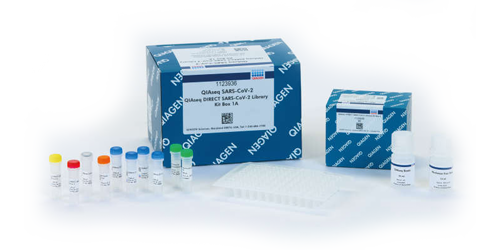
Photo Credit: QIAGEN
German company QIAGEN, on April 20, 2021, announced the launch of the artus ® SARS-CoV-2 Prep & Amp UM Kit. The method is powered by liquid-based sample preparation technology and thus simplifies and increases COVID-19 test throughput.
The artus ® SARS-CoV-2 Prep & Amp UM Kit has been registered for use in markets that accept CE-IVD labeling. In addition, an application has been made to the US health authority FDA for an Emergency Use Authorization, which means that commercialization in the USA within the scope of the notification is possible.
The innovative artus ® SARS-CoV-2 Prep & Amp UM Kit from QIAGEN combines liquid-based sample preparation, which takes no more than two minutes, with a real-time PCR test. The kit uses common transport media such as Universal Transport Media (UTM ™) as the starting material and contains all the necessary reagents for processing patient samples if SARS-CoV-2 is suspected - from the sample to the result.
The optimized workflow delivers results significantly faster than extraction-based qualitative standard PCR methods - and can process up to 672 samples per centrifuge in eight hours. In addition, the amount and volume of waste is significantly lower due to the shorter workflow.
QIAGEN has developed one of the most comprehensive SARS-CoV-2 research and test portfolios. This includes syndromic tests with QIAstat-Dx, high-throughput PCR with artusPrep & Amp and the NeuMoDx devices, the digital PCR solution QIAcuity for wastewater tests and solutions for T cell research based on QIAGEN's QuantiFERON IGRA technology. QIAGEN offers a range of products for NGS research on the SARS-CoV-2 virus as well as bioinformatic services and databases such as QDI.
In Germany, QIAGEN also offers rapid antigen tests for employers in order to make a further contribution to meeting the high test requirements in companies and public institutions.




